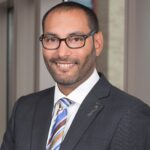Rheumatologists and rheumatology health professionals interested in knowing more about the major legislative and regulatory issues that may have an impact on their practice will want to attend the Legislative and Regulatory Update 2016 session at the upcoming ACR/ARHP Annual Meeting.
On Tuesday, Nov. 15, from 7:30–8:30 a.m. in Room 140A, Will Harvey, MD, MSc, ACR Government Affairs chair, will provide an update on the legislative and regulatory issues that affect the practice of rheumatology at both the federal and state levels. “The legislative update session will give attendees insight into how we are addressing key issues affecting rheumatologists and our patients,” says Dr. Harvey.
A Leading Lawmaker Speaks
In addition to Dr. Harvey’s talk, attendees will meet and hear from Congressman John Shimkus (R-IL), who is leading the fight against the proposed Part B drug payment demonstration and who is poised to potentially become chairman of the powerful House Energy & Commerce Committee, which handles healthcare issues. Rep. Shimkus will talk about the progress being made on rheumatology issues and what to expect from the new Congress.
“We are honored we’ll be hearing directly from this leading lawmaker who will provide his insight into congressional priorities as we move toward the lame duck and the next Congress,” says Dr. Harvey.
Key Issues to Be Discussed
Among the issues that Dr. Harvey will discuss in his talk:
- The new Medicare payment system under MACRA;
- The Part B drug payment demonstration project;
- Patients’ access to treatment, including access to medications and physical therapy services;
- Research funding; and
- Practice administrative issues.
Dr. Harvey’s update on the Part B payment demonstration (demo) proposed by the Centers for Medicare & Medicaid Services (CMS) will be of particular interest to attendees. Currently, the ACR has urged CMS to withdraw the demo, or if it is not withdrawn, to make significant modifications to it. If CMS does not respond to the proposed modifications, the ACR proposes to use Congressional oversight authority to block the demo through legislation or by restricting funding.
Another issue Dr. Harvey will address focuses on the efforts currently underway to increase investment in rheumatology research, including the creation of a dedicated $20 million arthritis research program at the Department of Defense to better serve veterans with rheumatic diseases. He will also discuss what the ACR is doing to support:
- The allocation of $34.5 billion for the National Institutes of Health in the FY 2017 Labor, Health and Human Services Appropriations Bill;
- The inclusion of NIH funding in the 21st Century Cures legislation; and
- The allocation of $13 million for the Centers for Disease Control and Prevention Arthritis Program in the FY 2017 Labor-HHS Appropriations Bill.
He will also talk about work being done by the ACR to help patients access specialty therapies and update members on the status of the Patients Access to Treatments Act (PATA), a bipartisan bill (H.R. 1600) currently in the House that limits patients’ cost-sharing requirements for specialty tier drugs, reduces the financial burden for patients, increases access to lifesaving biologics and allows patients to function and remain in the workforce. The ACR is attempting to get members to help introduce PATA in the Senate and to hold hearings on issues affecting patients’ ability to access treatments.
One Takeaway: Get Involved
Along with updating members on the significant challenges facing rheumatology on these legislative and regulatory fronts, the session is also aimed at giving members a sense of the importance of getting involved in advocacy work on rheumatology issues, says Adam Cooper, senior director, ACR Government Affairs.
“We’d also like members to come away personally motivated to work with their colleagues in advocacy to address these challenges,” he says. “We have made progress, but we continue to face these challenges to practices, to patient access to care and to treatments.”
Mary Beth Nierengarten is a freelance medical journalist based in Minneapolis.



